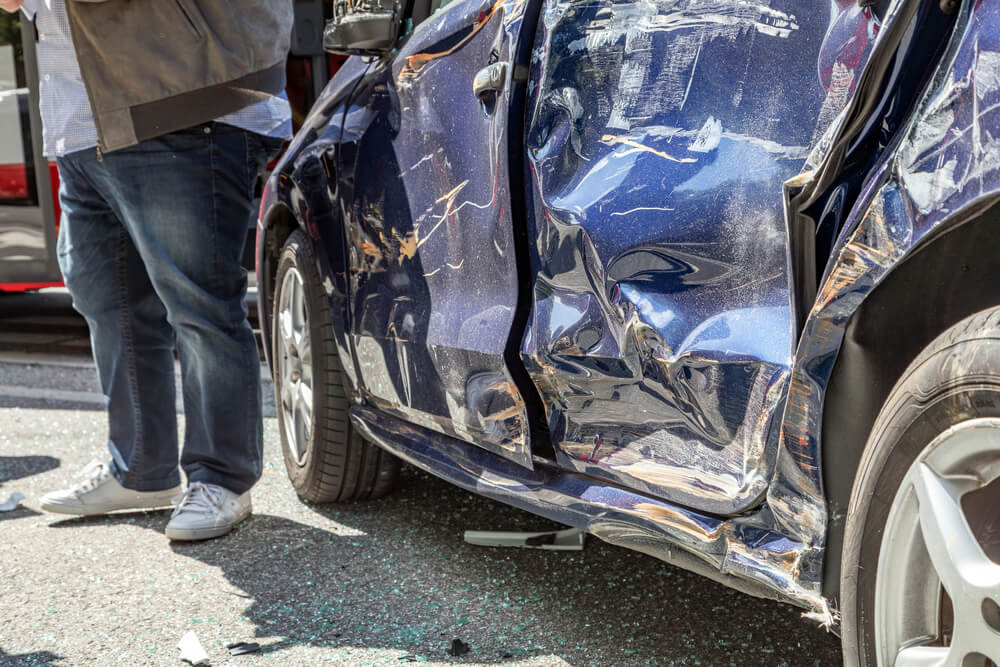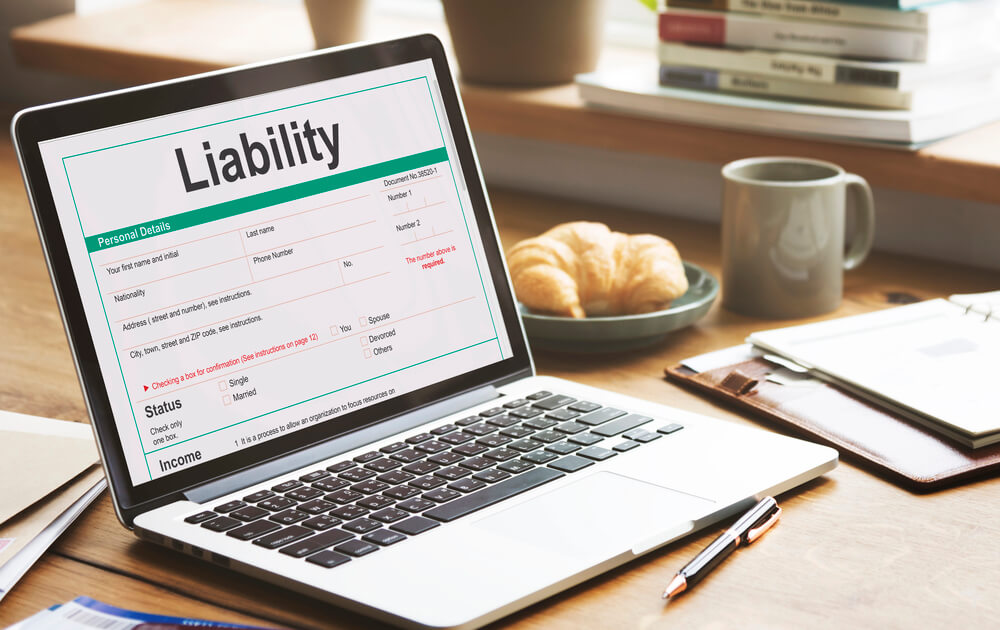Experiencing a hit-and-run accident can leave you feeling panicked and confused. It will also leave you with pressing questions, like will insurance cover a hit-and-run? What if the police cannot find the other driver? The good news is that insurance can cover a hit-and-run, but it’s important to fully understand this complicated process.
What Constitutes a Hit-and-Run?

A hit-and-run accident happens when a driver leaves the scene without giving law enforcement the required details, such as their name, address, driver’s license number, vehicle registration and insurance information. In states like Arizona, you must provide these details if an accident causes property damage or injury.
Failing to stay and give this information can lead to criminal charges. A hit-and-run often starts as a misdemeanor, but it may become a felony if the crash results in serious injury or death. The potential penalties include jail time, fines or both.
An injured party can also bring a lawsuit against the at-fault driver to cover medical bills, lost wages or property damage. This legal process is separate from any criminal proceedings but may rely on the same evidence gathered by law enforcement..
When Does Insurance Cover a Hit-and-Run?
Insurance providers offer multiple types of policies that can cover a hit-and-run, depending on the circumstances. Collision coverage will pay for the property damage caused by a hit-and-run, regardless of who is at fault. Uninsured motorist coverage kicks in if you are unable to identify the at-fault driver. You can also turn to MedPay or personal injury protection to help cover injuries and medical expenses.
Of course, if another driver is at fault and you can establish their liability, then their auto insurance will cover your damages instead.
Collision coverage and uninsured motorist coverage may include a deductible you have to pay before insurance covers the rest of your losses. If you can identify the at-fault driver in a hit-and-run, pursuing compensation may help cover that deductible, along with other expenses, such as medical bills or property damage. This can protect your finances by reducing or avoiding out-of-pocket costs.
Is It Worth Filing a Hit-and-Run Report?

Filing a hit-and-run report with the police helps them track down the reckless driver and hold them accountable. You may also want to report the accident to your insurance company, even if you suspect your payout will be small. This way, you have a better chance of getting compensation for the damage and inconvenience you faced.
Many hit-and-run collisions may seem minor, like a bumper tap, and at-fault drivers often believe you will not bother taking action for such a small incident. However, minor collisions can still cause serious issues that might not surface until months later. For example, you might feel fine immediately after a minor rear-end collision but develop neck pain or discover hidden mechanical problems weeks later. Starting an insurance claim right away, even if you don’t think the collision was a big deal, helps ensure you don’t later lose out on compensation you deserve.
Hit-and-Run Reporting Deadlines
If you fail to report a crash to the police and your insurance company by the specified deadlines, your insurer can deny your claim. Some policies give you a week or 30 days to file, but each policy has its own requirements.
A driver who commits a hit-and-run and misses the reporting deadline may face even more penalties. An insurer may refuse to renew the at-fault driver’s policy or even cancel it outright, which can create further complications down the road.
What Should You Do After a Hit-and-Run Accident?
The first thing you should do after a hit-and-run is contact the police and wait at the scene of the crash, even if the other driver is long gone. Provide as much information as you can remember about the other vehicle. Document the accident by taking photos of the scene and the damage to your vehicle.
After complying with the police, you should immediately seek medical attention. This is an important step, even if you do not notice any signs of injury. The resulting medical records can become powerful evidence if you decide to file an accident claim.
Report the accident to your auto insurance provider as soon as possible. It is also a good idea to contact a personal injury attorney to receive experienced guidance on how to proceed.
Following these proper procedures will strengthen your accident claim and help ensure that the insurance company will cover the hit-and-run appropriately.
How Can You Establish Liability in a Hit-and-Run Case?

Getting the insurance company to cover a hit-and-run requires you to prove that the other party is liable for your damages. This is why it is important to try to remain calm after a collision and memorize as much as you can about the other vehicle. This will help investigators track down the negligent driver quickly, making it easy for you to hold them accountable for your damages.
Liability is typically clear-cut in a hit-and-run case. All drivers involved in an accident must remain at the scene until law enforcement arrives. A driver who leaves the scene is clearly in the wrong and is likely trying to avoid the consequences of causing an accident.
However, the matter of liability can be complex if police cannot track down the person who committed the hit-and-run. In this case, you can receive compensation through your own auto insurance policy instead. If you have uninsured motorist coverage, it will pay for your damages if law enforcement cannot find the at-fault driver to hold them liable.
What Damages Can You Recover in a Hit-and-Run Claim?
A hit-and-run accident can cause significant economic and non-economic damages that you have every right to recover. Some of the most common recoverable damages in a hit-and-run claim include:
- Property damage and vehicle repairs
- Medical expenses
- Lost wages
- Emotional distress
- Pain and suffering
The full amount you can recover in an accident may be limited by insurance limits. For example, the minimum limit of auto liability insurance that drivers must carry in Arizona is $25,000 for bodily injury or death per person (up to two people) and $15,000 in property damage. If you file a claim through your own collision or uninsured motorist coverage, the limits in your policy will set how much you can receive instead.
Does Insurance Cover a Hit-and-Run of a Parked Car?
Yes, insurance will cover a hit-and-run that happens to your parked car. In these types of cases, it can be especially difficult to track down the at-fault driver. If you are able to identify the liable person, you can pursue compensation through their auto insurance provider. Otherwise, you can file a claim through your own collision coverage or uninsured motorist coverage.
Will a Hit-and-Run Claim Affect Your Insurance Rates?

Filing a claim for a hit-and-run accident typically does not affect your insurance rates if you were not at fault. Many states have laws that shield faultless drivers from being “punished” with higher premiums after they file a claim, so you often have little to lose by filing a claim for damages caused by a negligent driver.
On the other hand, a person who causes a hit-and-run will likely face increased rates after filing a claim. Collision coverage can still pay for repairs or replacements even if they are at fault, but the insurance company will likely see the at-fault driver as a riskier client as a result. This can lead to much higher premiums.
When Should You Reject a Hit-and-Run Settlement Offer?
It’s in your best interest to reject unfair settlement offers. While it might be tempting to accept the insurance company’s initial offer, especially after a hit-and-run has already disrupted your life significantly, it’s important to make sure you get every bit of compensation owed to you. Once you sign a settlement agreement, it’s typically not possible to pursue additional compensation for the same accident.
Your legal team can advise you on how much your case is actually worth. They can help you understand when the insurance company is lowballing you and how likely it is that you can negotiate for a better settlement.
What Can You Do When the Other Driver’s Insurance Will Not Pay?
If the hit-and-run driver’s insurance company will not pay, your first course of action should be to check if your own insurance will cover the damage through collision coverage or an uninsured motorist policy. You can also request an internal review of the insurer’s practices to ensure they are not acting in bad faith. If there is still no resolution, you might consider taking legal action.
The best method will depend on the reason behind the insurance company’s decision. If they deny your claim in an act of bad faith, your lawyer can leverage professional resources to hold the insurer accountable. If the insurer is simply lowballing you in an effort to protect their bottom line, you can rely on your legal team to fight as hard and as long as it takes to reach a satisfactory outcome.
While suing is always an option, it is always preferable to settle outside of court. You should make every effort to reach a favorable settlement through negotiation, even if that means bringing in a third-party mediator or arbitrator to facilitate discussions. Litigation can be costly, and it can add many months to the claims process, so going to court should be a last resort.
What Does It Mean To Be an At-Fault State for Hit-and-Runs?
In an “at-fault” state, the person who causes the collision is liable for the resulting injuries and damages. The person injured by the accident has every right to sue the at-fault driver for compensation.
This differs from “no-fault” states, where the injured person can seek compensation through their own auto insurance or personal injury protection policies, regardless of who is at fault. These states provide limited rights to sue, which can sometimes cap the amount of compensation available but can also be a more straightforward process in some cases.
At Sargon Law Group, we handle hit-and-run cases in Arizona, Colorado, New Mexico and California, all of which are at-fault states. We recognize that an injured person’s ability to recover adequate compensation can depend largely on how capable we are at proving the other party’s fault. That is why we take each case seriously and communicate openly with our clients at every step of the process.
How Can a Lawyer Help With a Hit-and-Run Case?

Having a lawyer on your side can make a significant difference in the amount of compensation you can secure in a final settlement. This is especially true in cases where the details are not entirely straightforward, such as a hit-and-run case. An attorney can advocate for the best possible outcome, even when it is difficult to identify the at-fault driver or establish their liability.
A Phoenix car accident attorney at Sargon Law Group can help with your hit-and-run case by:
- Tracking down the hit-and-run offender
- Collecting evidence to establish the other party’s fault
- Filing your claim and completing other necessary paperwork
- Negotiating with the insurance company on your behalf
- Representing you in court if you sue the insurer or other driver
Consulting with a lawyer as soon as possible can greatly benefit a hit-and-run case. Your legal team can work swiftly to hold the insurance company accountable and keep your case on a tight schedule. This is important, especially in states like Arizona, where the statute of limitations for filing a personal injury lawsuit after a car accident is only two years from the date of the crash.
However, certain factors—like a minor’s injuries or a government entity’s involvement—can change that deadline. Your lawyer can let you know what timeline applies in your situation so you do not miss your chance to seek compensation.
Call Sargon Law Group for Your Hit-and-Run Case
A hit-and-run case can have a major physical and emotional impact on your life. You might have serious injuries and vehicle damage to manage, and you may feel anxious about whether investigators will find the driver who caused the crash. Calling a lawyer is often your first step toward easing these concerns.
At Sargon Law Group, we understand how stressful this time can be, and we are committed to helping you secure coverage for your losses. Contact our Phoenix injury lawyers today to discuss your options and schedule a free consultation.
